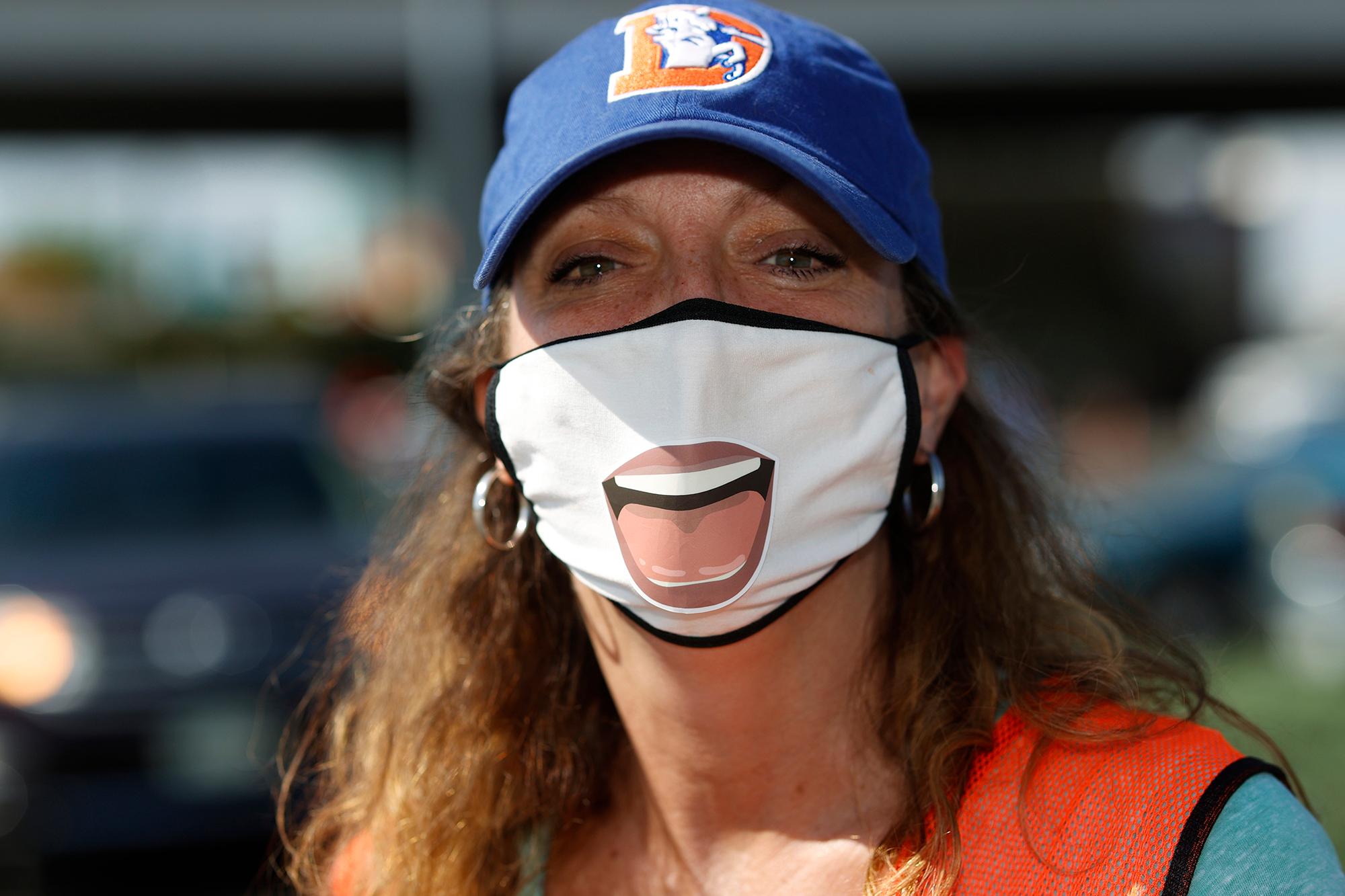
Update July 16 — 2:46 p.m.
Up until now, Polis had stuck with the trusting citizens and business approach, as well as leaving it to local elected officials to decide. Data showing a recent increase in COVID cases and hospitalizations changed his mind.
Our original story continues below.
In April, Gov. Jared Polis encouraged Coloradans to adopt a “strong mask culture” to help prevent the spread of the coronavirus.
Since then, he’s urged people to wear masks in public time and time again. However, the state has stopped short of mandating face coverings.
Colorado continues to reopen parts of its economy while limiting others over health concerns amid the pandemic. The state has also seen an uptick in confirmed COVID-19 cases recently. All that’s left many wondering whether to wear face coverings when leaving the house.
The Tri-County Health Department, which oversees Arapahoe, Douglas, and Adams counties, is the latest to move forward with a mandate that requires masks in public when social distancing is not possible. The department’s board voted Wednesday in favor of drafting the public health order, citing a rising number of cases in the counties recently.
“Wearing masks is an easy and effective way to protect your fellow neighbor — as well as your family and yourself — from the virus,” Dr. John M. Douglas, Jr., who directs the department, said in a statement. “It is also a positive solution for keeping businesses open and helping the economy, as well as giving our schools a better chance to fully reopen next month.”
While specifics are unclear, counties and municipalities may be able to opt-out of the mandate. Douglas County’s board of county commissioners has already voted to do so. The board also went a step further and said it intends to withdraw from the Tri-County Health Department and create its own public health department.
“We question the enforceability and efficacy of the mask mandate order, believing that trusting our citizens and business community to continue doing what they do, without a mandate, is the best approach,” Commissioner Lora Thomas said in a statement.
Other counties, like Denver, Boulder, Summit and Larimer, have instituted mandates requiring residents and visitors to wear masks in public places and businesses. Several municipalities have their own similar health orders too.
The terms of each ordinance vary slightly, particularly when it comes to consequences for rulebreakers. Some, like Summit County, did not clearly outline punishments, while Denver may fine violators up to $999.
During a press briefing on Thursday, the governor again stressed personal responsibility as the key to limiting the spread of coronavirus, and he declined to enact a statewide requirement.
“If you want to reduce the unemployment rate, protect jobs, maybe even your own job, wear a mask,” Polis said. “If you want your stock portfolio to rebound, wear a mask. If you want professional sports coming back, wear a mask.”
For a mask ordinance to work, “it has to have a local buy-in,” Polis said. He added that the state would not be able to enforce such an ordinance statewide.
“We don't know exactly what mask-wearing ordinances will do,” Polis said. “We hope that they lead to increased mask usage, we think they will, we encourage. But they need to be enforced if we're serious.”
Some public health leaders have criticized Polis’ refusal to issue a statewide ordinance. Julie Reiskin, executive director of the nonprofit Colorado Cross-Disability Coalition, said the state needs to take a stronger stance in order to keep at-risk populations safe.
“A lot of people with disabilities have underlying conditions,” Reiskin said. “I think it's irresponsible. I think the state should enact a statewide mandate.”
Theresa Anselmo, executive director of the Colorado Association of Local Public Health Officials, said the governor should focus on a statewide ordinance in order to set the tone, rather than worrying about how to enforce it.
“It really sets a precedent about what the expectation is,” Anselmo said. “It models the behavior that we expect of the people in our communities to protect one another and the economy, and the people who come in out of state, who may not know what the expectation is.”
The association, which represents Colorado’s local public health agencies, plans to recommend a statewide ordinance to Polis and the state health department.
Several of Colorado’s most populous counties don’t require face coverings. That includes Jefferson, Mesa and El Paso counties, which so far have followed the governor’s lead by simply encouraging masks through widespread messaging.
“Our efforts have been heavily focused on proactively providing education and outreach to help communicate why it's important to wear a mask,” El Paso County Public Health spokeswoman Michelle Hewitt said.
The Centers for Disease Control and Prevention now recommends that people cover their faces in public in order to reduce the spread of COVID-19. Some recent studies have shown that it’s effective.
Several states, such as Texas and California, have announced mask ordinances while trying to balance public health with economic needs. But many people say enforcing these requirements is a tall order.









